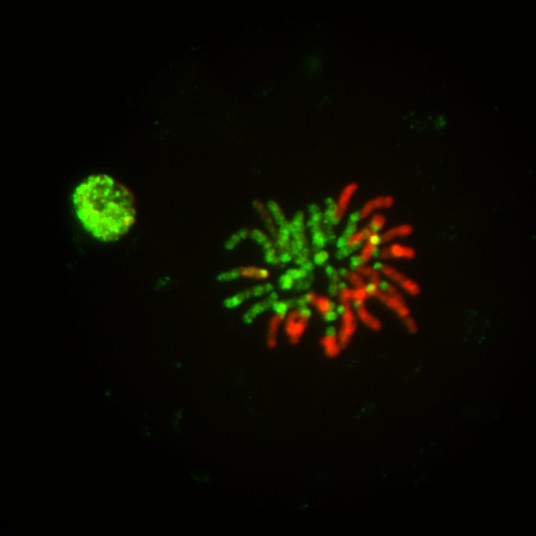Epigenetic reprogramming in stem cells
Epigenomic reprogramming is an important molecular process in the development of stem cells. In natural (ESCs, early embryos) and induced (iPS) states of pluripotency epigenetic modifications are dramatically altered on a genome wide scale. The coordinated reprogramming and the maintenance of an organized epigenetic ground state in pluripotent cells are important for the functional stability and subsequent differentiation.
In mammals histone modification and DNA-methylation patterns are masively reduced into a low ground state epigenome level during primordial germ cell development and at early embryonic cleavage stages. We investigate the molecular mechanisms contributing to the extensive DNA-methylation reprogramming in the early mouse embryo. In particular we are interested in understanding the functional role and dynamic changes of oxidative forms of DNA_methylation.
For our analyses we combine embryonic manipulations with immunocytohistochemical methods and next generation high resolution hairpin bisulphite sequencing to obtain comprehensive high resolution data. Combined with bioinformatic methods we to better define the order of collective molecular events and to understand the developmental consequences of epigenetic misregulation. This work is currently funded by the DFG SPP 1356 (http://www.spp1356.de/) and the Collaborative Research Centre 1027 (http://www.sfb1027.uni-saarland.de/?q=projects/C2).


